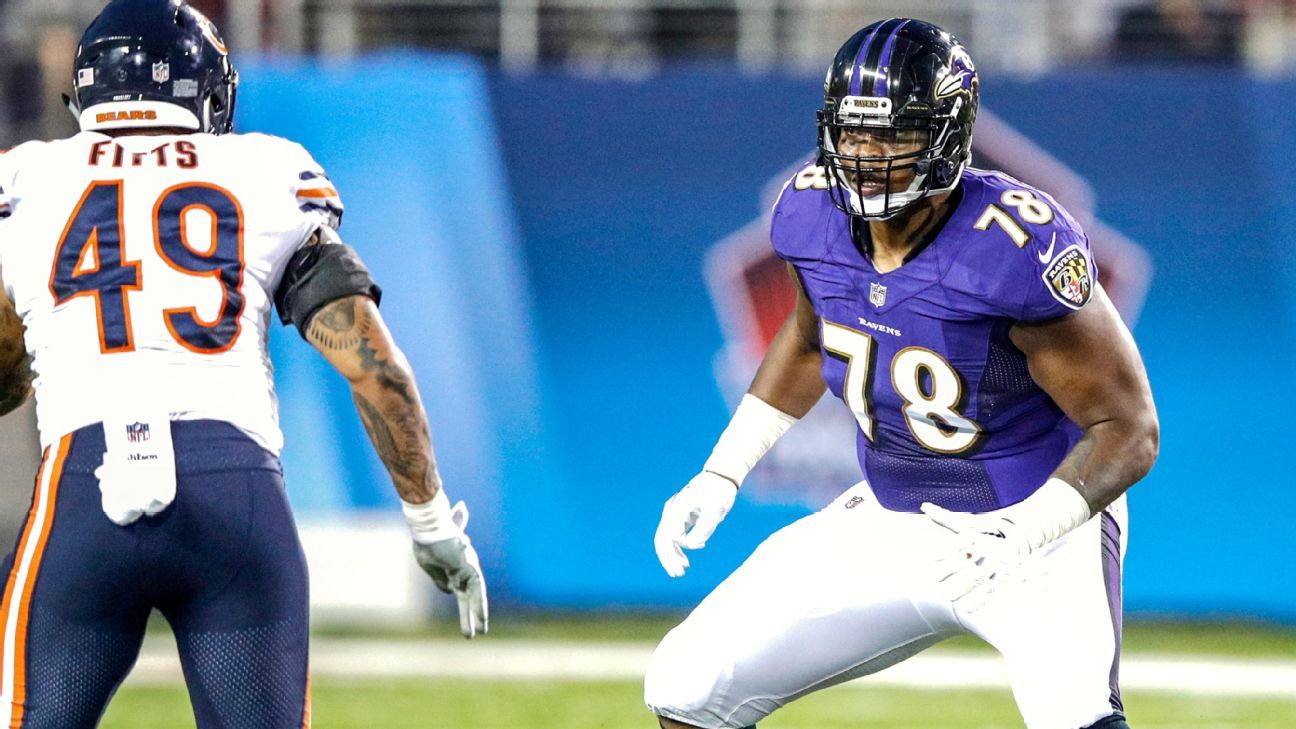Baltimore Ravens offensive lineman Orlando Brown warned critics not to count out players who struggle at this year’s NFL combine, which is advice that comes from first-hand experience.
Brown’s comments on Monday night were posted on Twitter before the start of this year’s combine and a year removed from when he delivered one of the all-time worst performances there. After slipping to the third round, Brown eventually established himself as the starting right tackle for the AFC North champions.
“The OL position isn’t easy to evaluate,” Brown wrote in a series of tweets. “It’s easy to turn to numbers because typically your best blockers are your best Athletes. In my opinion it’s simple, OL is like a form of art. We all have different tools and abilities.”
Last year, Brown went from being touted as the best offensive tackle in the draft to the biggest disaster story at the combine.
The numbers that drew the most scrutiny were his 14 repetitions at 225 pounds on the bench press (the fewest of any offensive lineman last year) and his 5.85-second 40-yard dash (the third slowest since 2006).
“With it being combine week, many evaluators will write off several OL because of his “lack of athleticism,'” Brown tweeted. “I’m here to tell you to pay attention to his film, figure out how he manipulates his blocks based off his tools, and don’t count him out cause he isn’t a Super athlete.”
Brown became one of the top rookie offensive linemen last season and didn’t allow a sack in his 10 regular-season starts, according to Pro Football Focus. Playing the same position his father did for the Ravens, Brown also paved the way for the NFL’s No. 2 run offense.
“While my game is played by manipulating angles and understanding where the QB will be in his drop, some get to a spot and react from there,” Brown wrote. “The reason that the numbers in the drills are so “valuable” is because they believe you have to be a “athlete” to react. To counter moves and capture LBs at the second level. In my short time of playing the position I can tell you that understanding your body and angles is more important than your foot quickness.”
